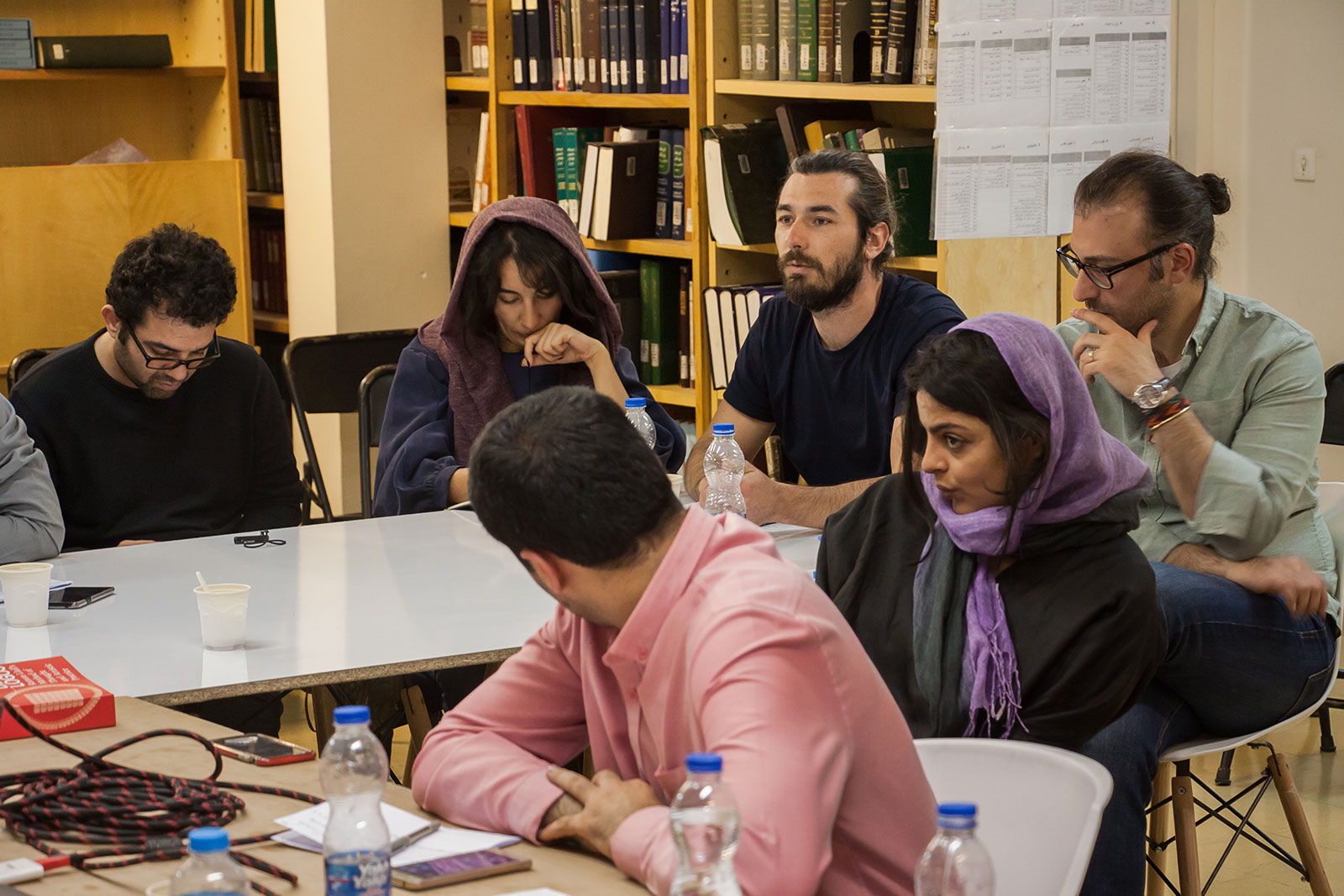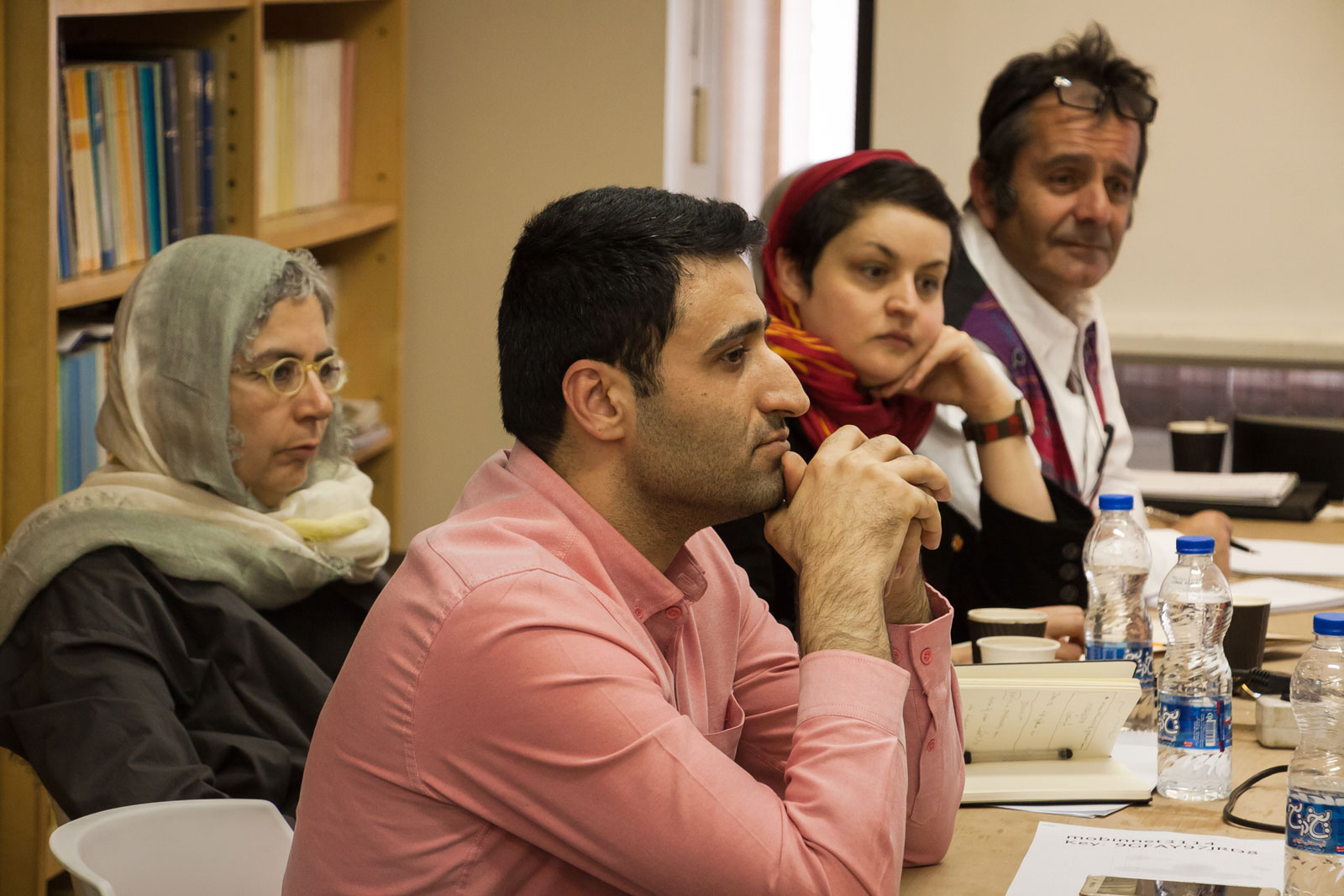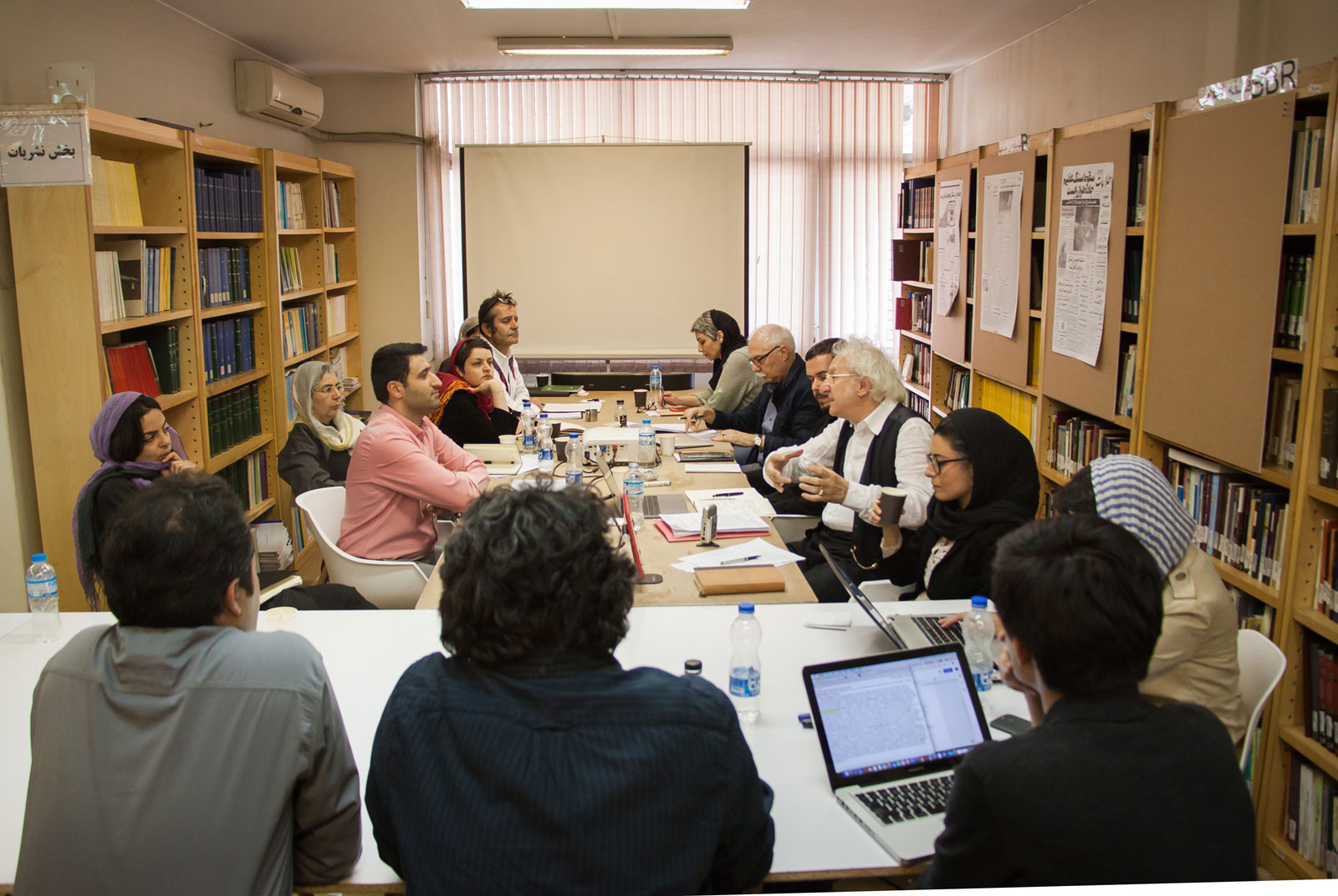Day 2: Technology as an ecosystem
Moderation: Dr Rahman Sharifzadeh
10 am: Introduction to the day by Reza Haeri and Martin Guinard
10h15: presentation by Dr.Daniel Irrgang (media theorist, independent scholar). Title: “Diverse Genealogies. Some methodological remarks.”
10h30: keynote by Prof. Siegfried Zielinski (media-theorist, director of the International Vilém-Flusser-Archive). Title: “Gondischapur - Baghdad - Cairo
„scientia experimentalis“ as an essential quality in the tradition of Islamic sciences
Followed by a collective discussion with all the participants.
2 pm: keynote by Prof. Didier Gazagnadou (anthropologist, university of Paris VIII, Vincennes)
Followed by a collective discussion with all the participants.
3 pm: short project presentation by Sara Kamalvan (architect, director of Hydrocity) “The invisible monument”.
Technology is often described as the potential saviour from the ecological situation. Nonetheless, it seems quite risky to wish for technical solutions alone, without considering all the social, ecological and political consequences that result from their use.
So what would happen if instead of considering techniques as objects, we were to consider these techniques as projects, involving many sorts of stakeholders? In a sense, this workshop will deal with the “territory” and “ecosystem” of technology.
In a text called Love your Monsters, Latour was making the point that the issue is not so much to create disruptive innovations. Rather the problem arises from the cessation of attempts to monitor all the consequences that result from their use.
It would be interesting to explore models proposed in earlier Islamic and pre-Islamic times, looking for those which could potentially offer a more sensitive and sensible approach towards the scarcity that the lands have to offer. The question here is not to go “back to the roots” of techniques, but rather to see if a potential attention to the soil found in traditional techniques such as the famous windcatchers could be combined with some current ones in ways that may be promising.
Date and Location:
Institute of History of Science of the Tehran University
Sunday, April 28th, at 10 AM
Photos by Mohamad Rezaee
Moderation: Dr Rahman Sharifzadeh
10 am: Introduction to the day by Reza Haeri and Martin Guinard
10h15: presentation by Dr.Daniel Irrgang (media theorist, independent scholar). Title: “Diverse Genealogies. Some methodological remarks.”
10h30: keynote by Prof. Siegfried Zielinski (media-theorist, director of the International Vilém-Flusser-Archive). Title: “Gondischapur - Baghdad - Cairo
„scientia experimentalis“ as an essential quality in the tradition of Islamic sciences
Followed by a collective discussion with all the participants.
2 pm: keynote by Prof. Didier Gazagnadou (anthropologist, university of Paris VIII, Vincennes)
Followed by a collective discussion with all the participants.
3 pm: short project presentation by Sara Kamalvan (architect, director of Hydrocity) “The invisible monument”.
Technology is often described as the potential saviour from the ecological situation. Nonetheless, it seems quite risky to wish for technical solutions alone, without considering all the social, ecological and political consequences that result from their use.
So what would happen if instead of considering techniques as objects, we were to consider these techniques as projects, involving many sorts of stakeholders? In a sense, this workshop will deal with the “territory” and “ecosystem” of technology.
In a text called Love your Monsters, Latour was making the point that the issue is not so much to create disruptive innovations. Rather the problem arises from the cessation of attempts to monitor all the consequences that result from their use.
It would be interesting to explore models proposed in earlier Islamic and pre-Islamic times, looking for those which could potentially offer a more sensitive and sensible approach towards the scarcity that the lands have to offer. The question here is not to go “back to the roots” of techniques, but rather to see if a potential attention to the soil found in traditional techniques such as the famous windcatchers could be combined with some current ones in ways that may be promising.
Date and Location:
Institute of History of Science of the Tehran University
Sunday, April 28th, at 10 AM
Photos by Mohamad Rezaee





